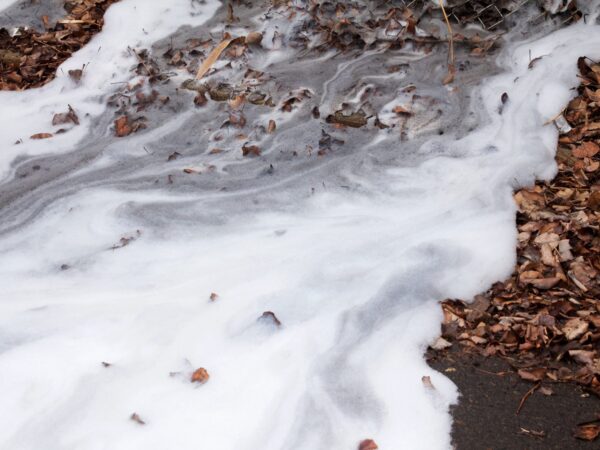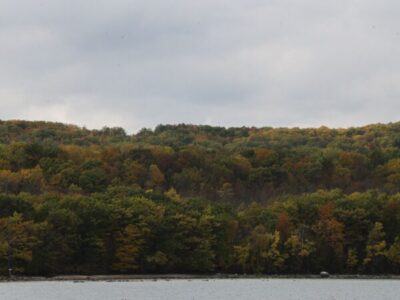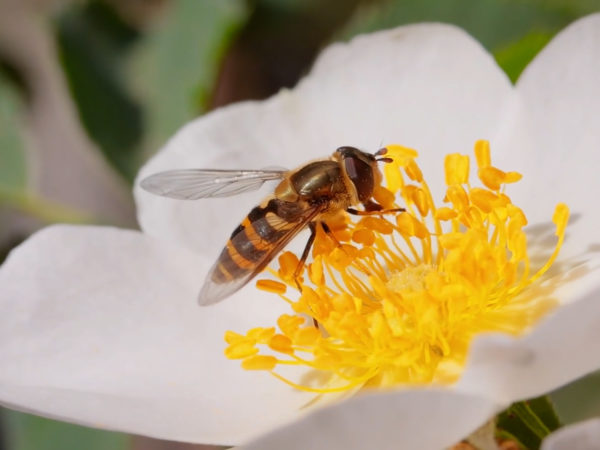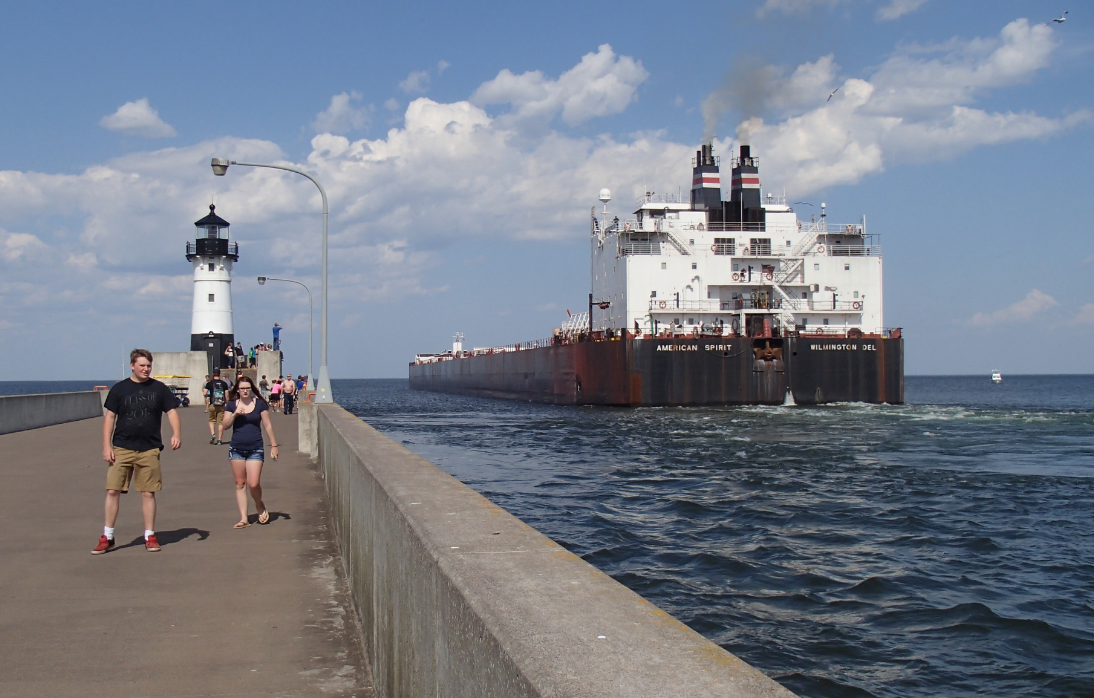
In March, COVID-19 brought the Great Lakes economy and society in general to a grinding halt.
Three months later, it’s not yet business as usual and challenges remain.
That’s the consensus of a group of Great Lakes industries and scientific researchers Great Lakes Now first spoke with in April.
We checked in with them last week to see how they’re doing three months later.
April’s bleak outlook
In April, veteran Lake Erie charter boat captain Dave Spangler told Great Lakes Now that “nothing was happening.” He had already lost seven weeks of business and said to be on the water in June was critical or the season would be lost.
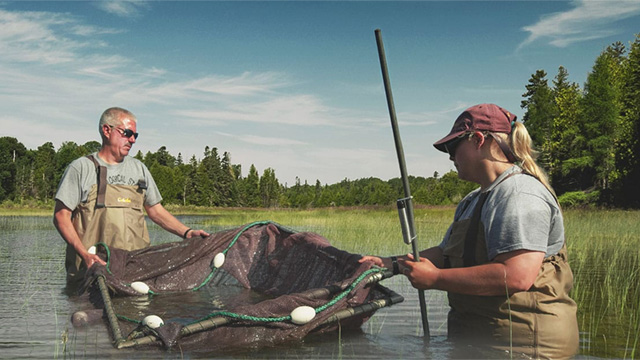
Professor Don Uzarski, Photo courtesy of cmich.edu
Companies that operate the giant lake freighters were taking vessels out of service for lack of cargo, something that hadn’t happened since the 2008 recession. “If they don’t have the need, they have to reduce capacity,” Lake Carriers’ Association president James Weakley said at the time.
Citing the “many unknowns,” Central Michigan University Great Lakes researcher professor Don Uzarski said “things have literally come to a halt” as he pondered how to manage his $20 million wetland monitoring program.
A normal June for charters
While still lamenting the loss of seven weeks of business, charter boat captain Spangler said June bookings were a “normal June.”
“A lot of people are coming to fish and the fishing is good,” according to Spangler, who said “the word was out” on the fish anglers were catching.
A turning point, Spangler said, came on May 12 when Ohio Gov. Mike DeWine lifted restrictions and also allowed out-of-state anglers to fish in Ohio. They had been prohibited to limit the spread of the coronavirus. Out-of-staters account for 80 percent of his business, Spangler said.
The micro-company on the dock that cleaned the daily catch returned and is doing a brisk business, Spangler said. Charter boat captains worried it couldn’t weather the financial storm brought on by the shutdown.
All isn’t rosy yet though. Spangler said he had cancellations after the ban was lifted from people who felt that in the era of COVID-19 they could no longer justify the expense. Others canceled saying they were “not comfortable” with venturing out yet.
Shipping could have been worse
As an essential business, lake freighters continued to transport raw materials as the COVID-19 crisis expanded and “given the hard stop to the economy, things could have been worse,” the Lake Carriers’ Association’s Weakley told Great Lakes Now.
There was a slight decline in April shipments of iron ore compared to 2019, Weakley said, but the drop off in May was “significant.” Iron ore is a linchpin commodity for steel manufacturing and steel mill capacity is at 50 percent compared to 80 percent at this time in 2019.
Weakley said there are “currently ten vessels not sailing that could be” but he expected they’ll return to service when the demand for steel increases.
There will also be a need for steel mills to stock up on raw material for winter and that could boost summer and fall traffic, especially with what Weakley described as “the lack of Coast Guard icebreaking capacity.”
Operationally, Weakley praised the crews of the ships that sailed during the depths of the COVID-19 pandemic.
“We remain grateful that there have been no confirmed COVID-19 cases on U.S.-flag lakers,” said Weakley, attributing the success to “the execution of COVID-19 plans by the professional sailors on our vessels.”
U.S. research back on track, but Canada still cautious
Wetland scientist Uzarski said he’s “pleasantly surprised” at how much work his researchers accomplished during the stay at home order.
“In April I said that I would have been happy if we completed 50 percent of the planned fieldwork. At this point we are on track to accomplish 80 percent or more,” Uzarski said.
And they did the work while meeting or exceeding Center for Disease Control guidelines for protection from COVID-19, he said.
By the time the research season ends Uzarski said he expects his team will accomplish almost as much as they would have without the pandemic though there were still setbacks.
“We did miss some spring sampling under unique conditions and those data are lost forever,” Uzarski said. “We cannot go back in time and those conditions will never be recreated.”
But Uzarski is optimistic for the balance of the sampling season and said his researchers are becoming more efficient and he expects to be able to cross the Canadian border, which is currently prohibited, in late July.
He’s also monitoring the decline in COVID-19 infection rates in certain areas that have made them off limits to researchers with the hope that he can get to them in August.
In Canada it’s a different story for scientists eager to restart their field projects put on hold by COVID-19.
“We are still in a position where we must request approval to start research and provide compelling rationale along with defined safety guidelines to do so,” University of Windsor professor Mike McKay told Great Lakes Now.
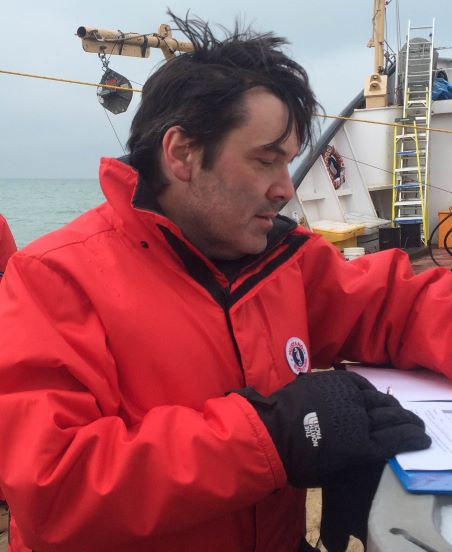
University of Windsor Professor Mike McKay. (Photo courtesy of University of Windsor)
The tight restriction reflects “a generally more cautious approach on the Canadian side to re-opening,” McKay said.
McKay was able to secure approval to hire a research vessel and colleagues received permission to deploy instruments in western Lake Erie, but concerted field work has not been given the green light.
By comparison, his U.S colleagues “are getting out on the water already” and are conducting field surveys of Sandusky Bay in coordination with the Ohio Department of Natural Resources, McKay said.
The Canada and U.S. border remains closed, which inhibits McKay’s work. Pre-COVID-19, he was travelling to Ohio and Michigan weekly to support his research.
“The border closure is indeed a challenge,” McKay said.
Read more Great Lakes Now COVID-19 news:
Fishing and Freighters: Great Lakes industries take COVID-19 economic hit
COVID-19 Complaints: Out-of-towners coming to fish in spite of stay home orders
Shipping Continues: Great Lakes shipping season opens with extra social distancing
Featured image: Pedestrians can access the shipping channel where freighters enter and exit Duluth, Minn.’s port. (Photo by Sandra Svoboda)


